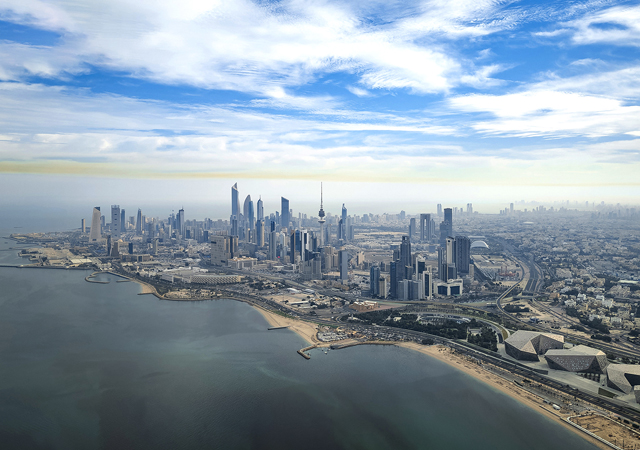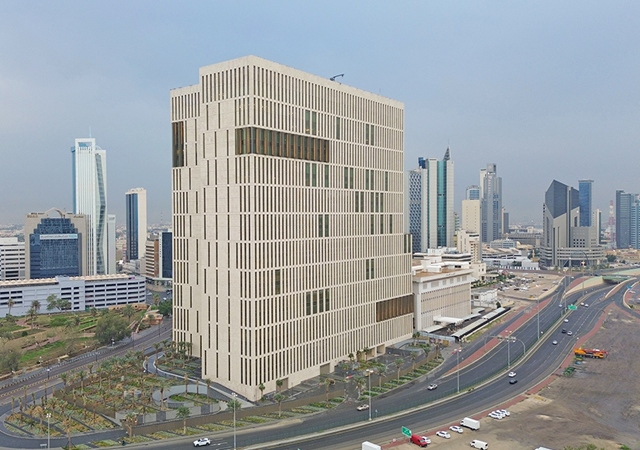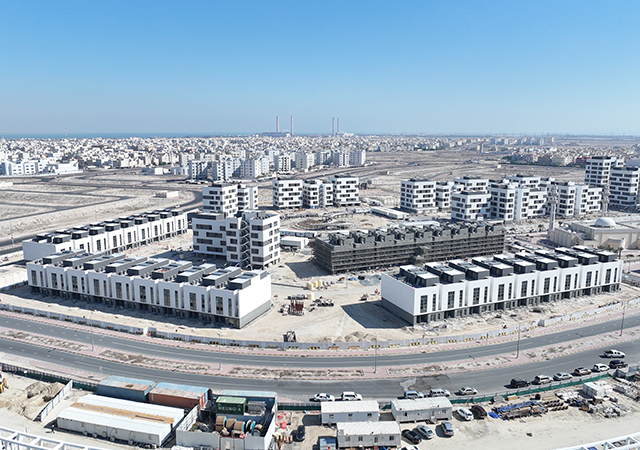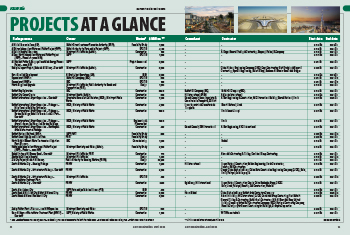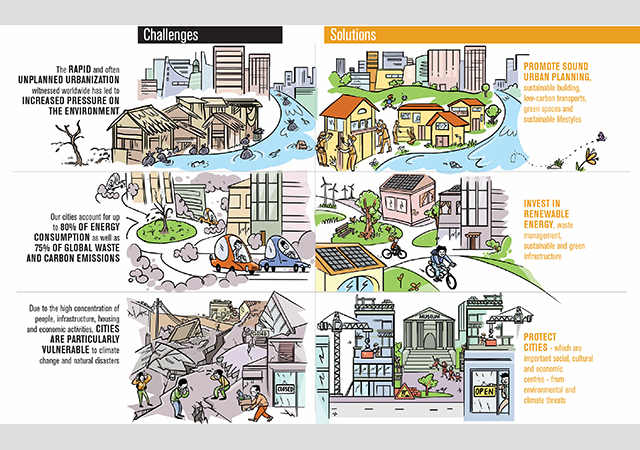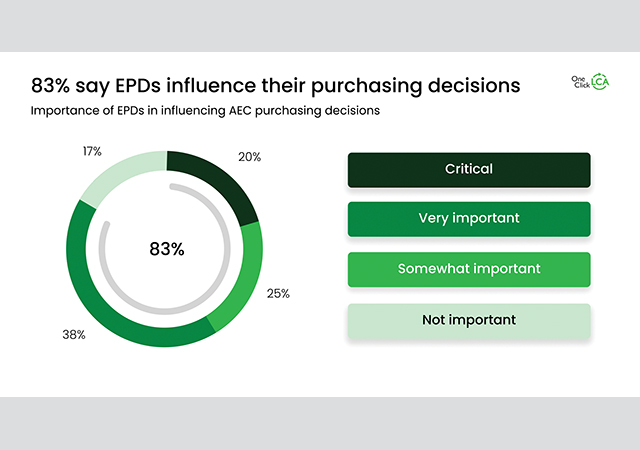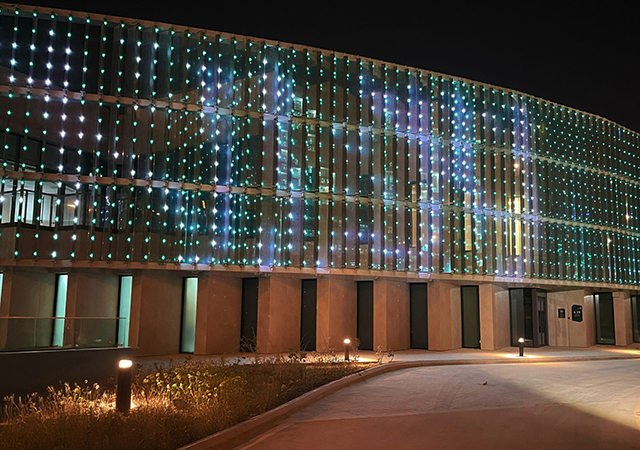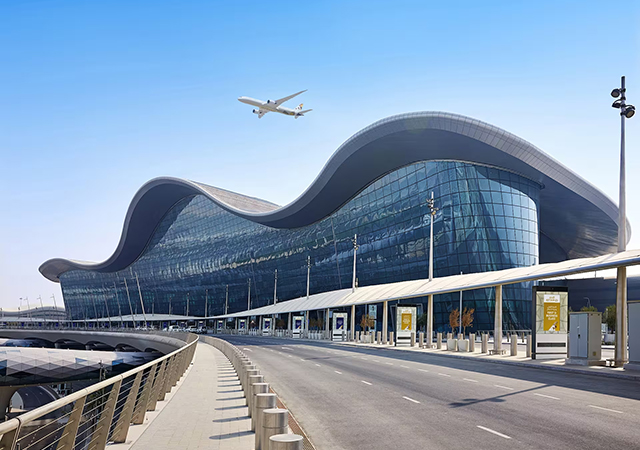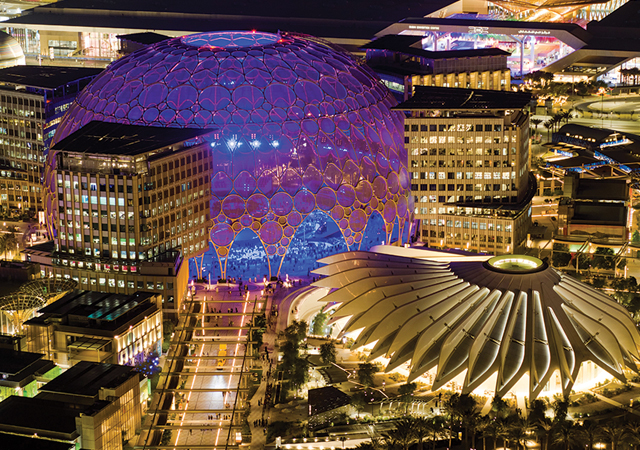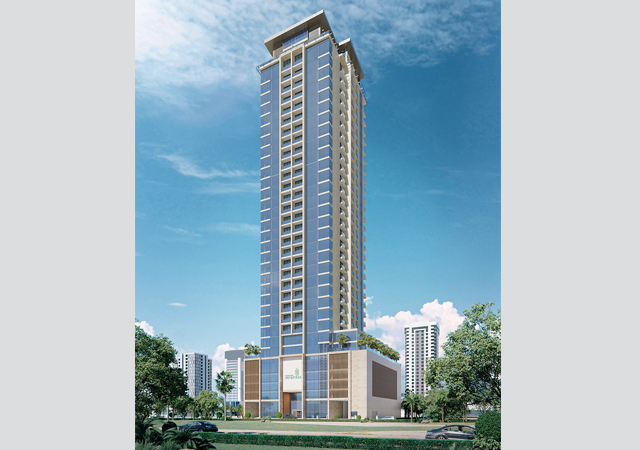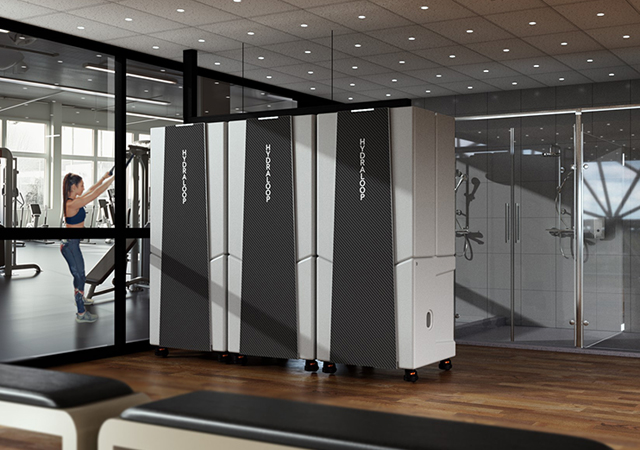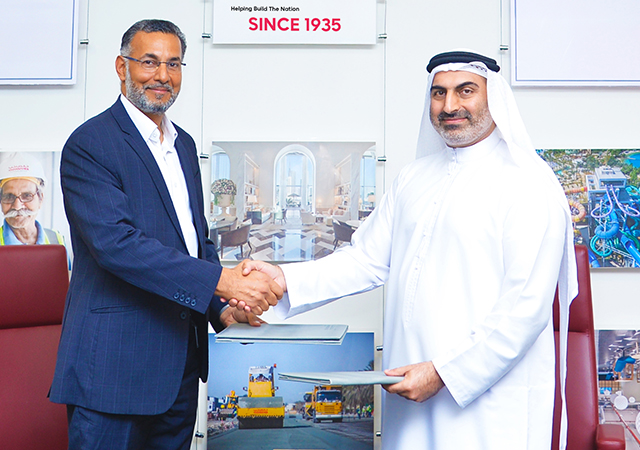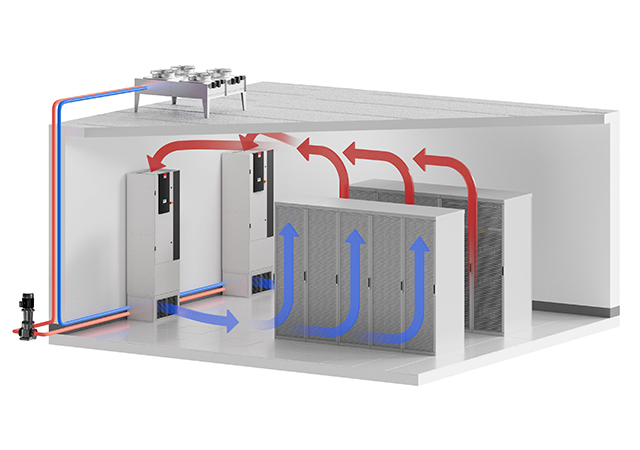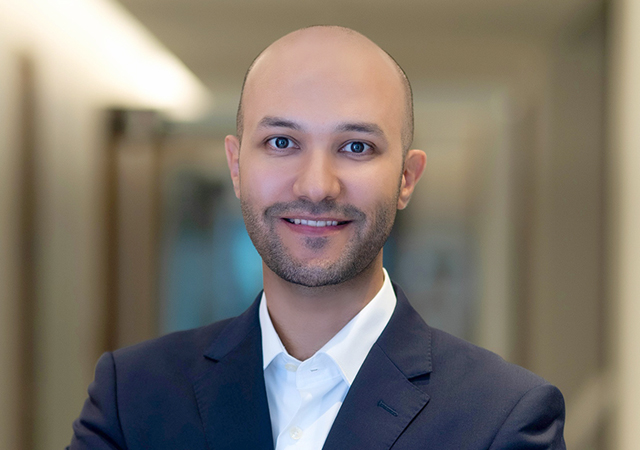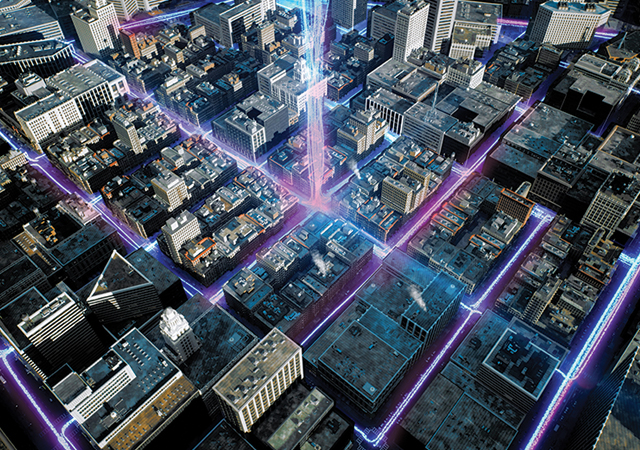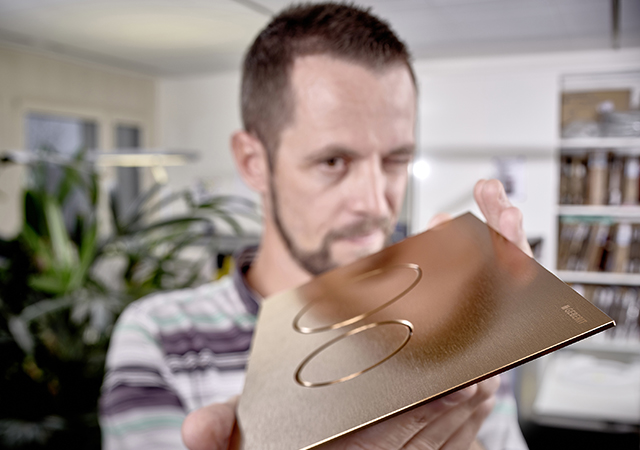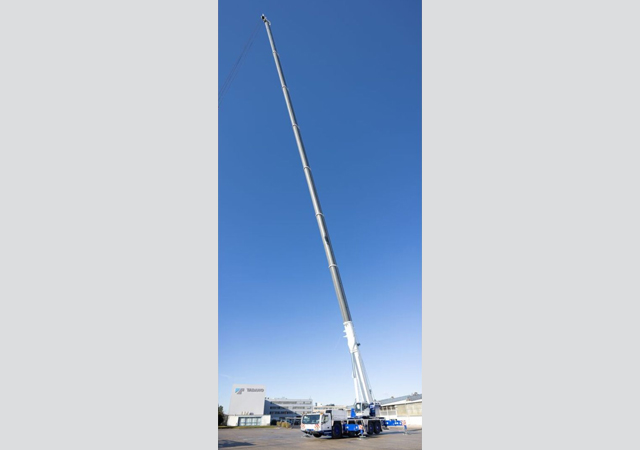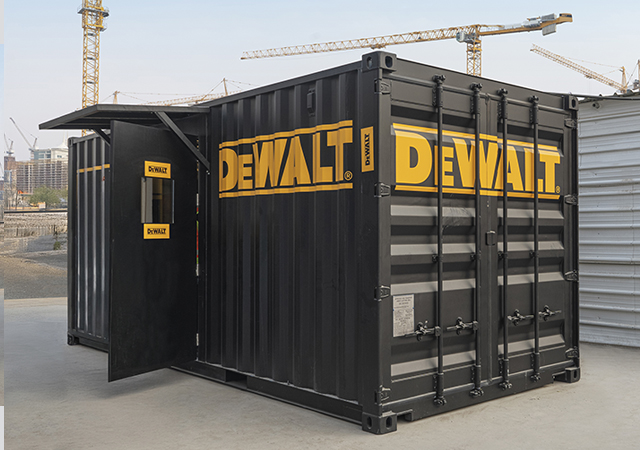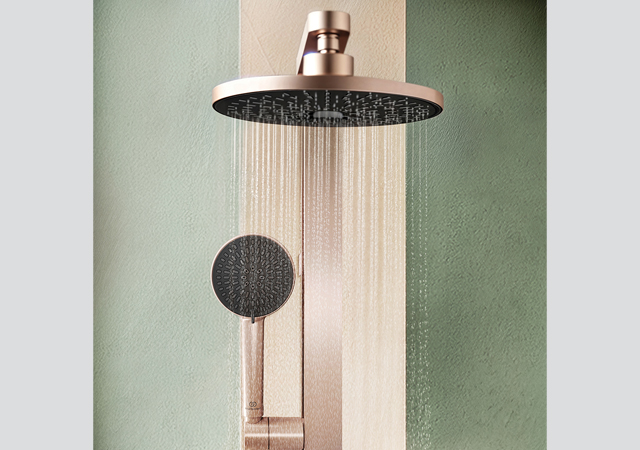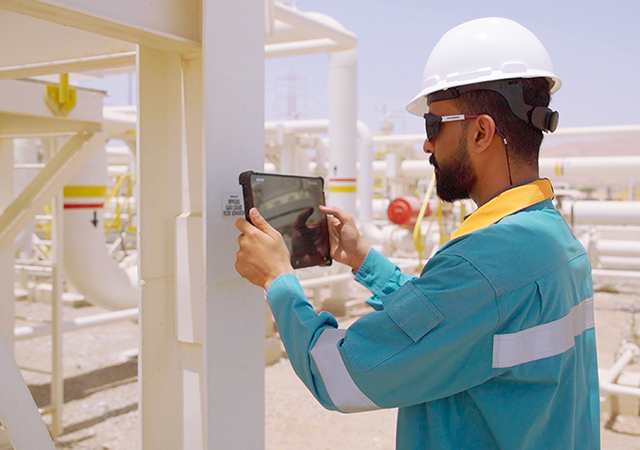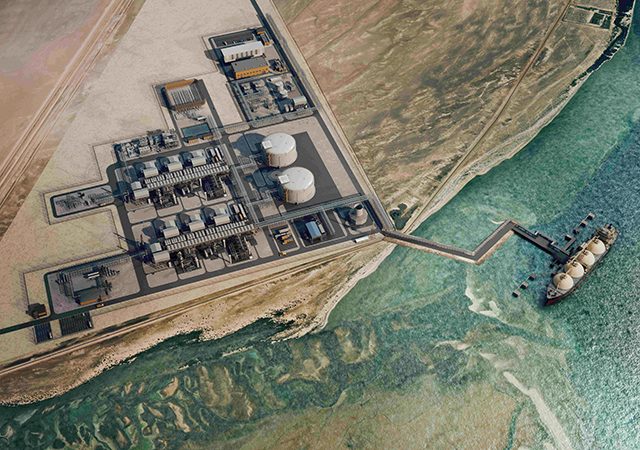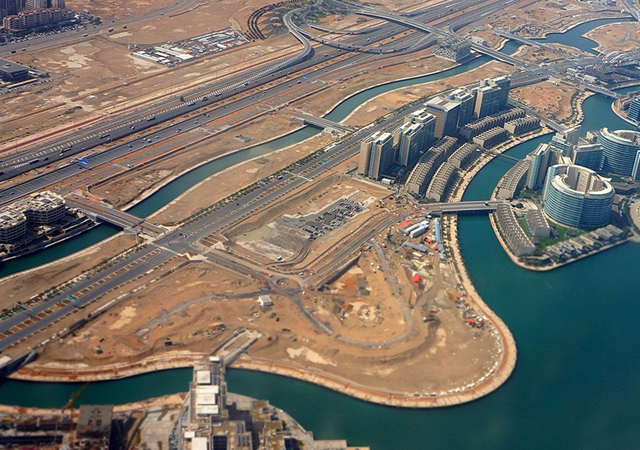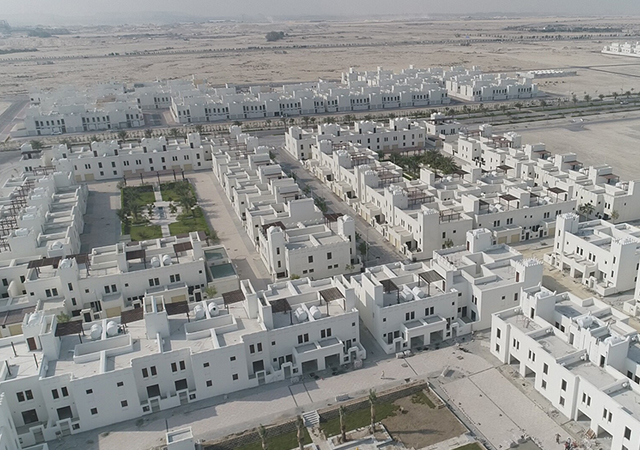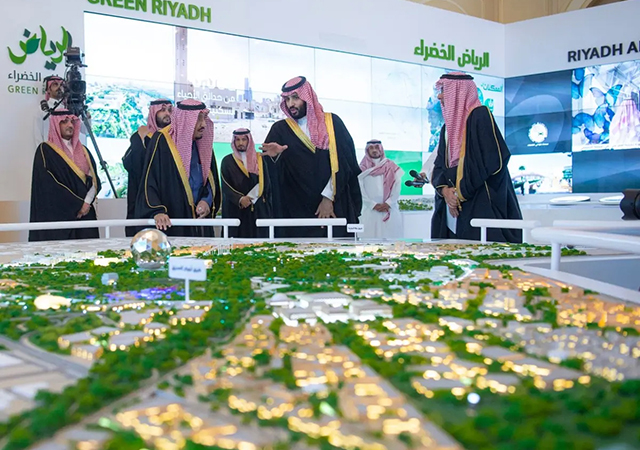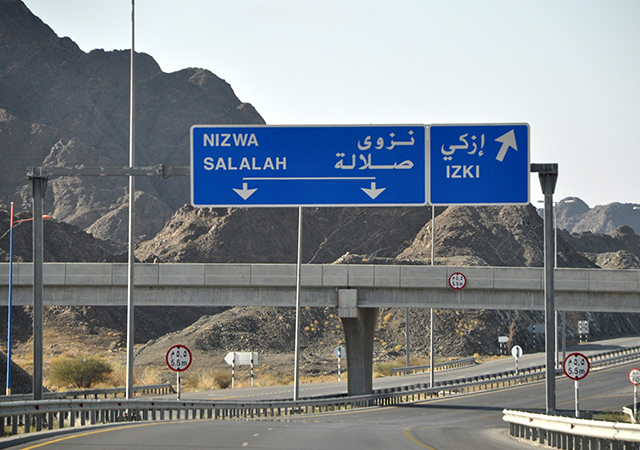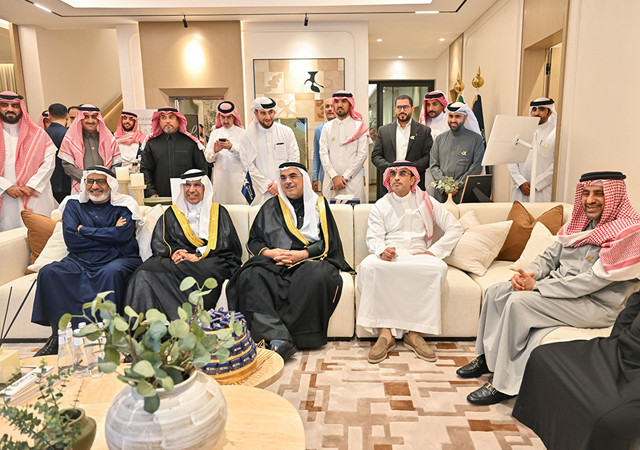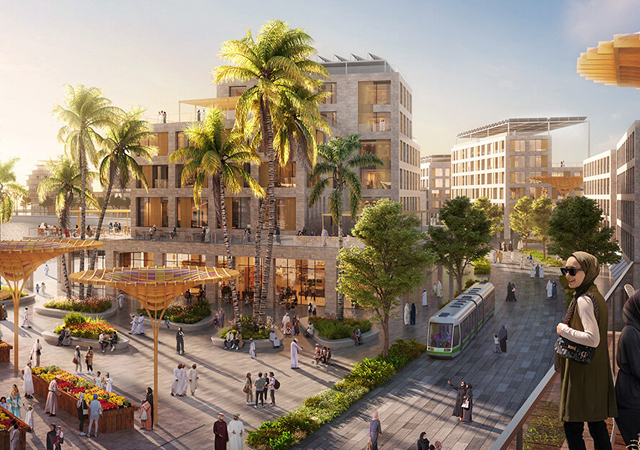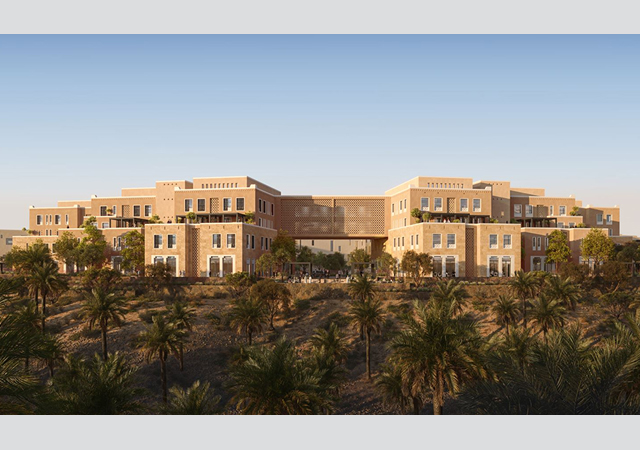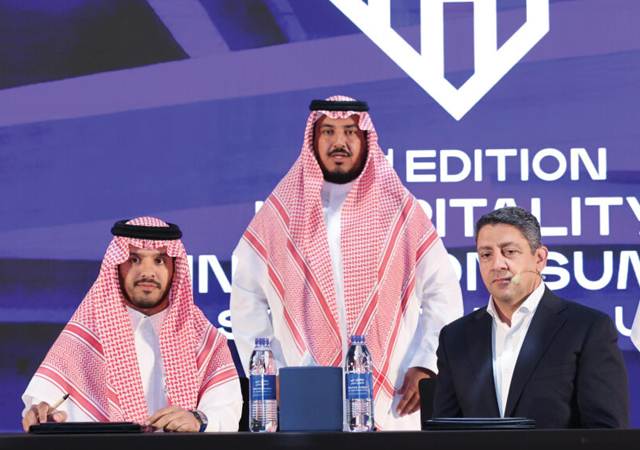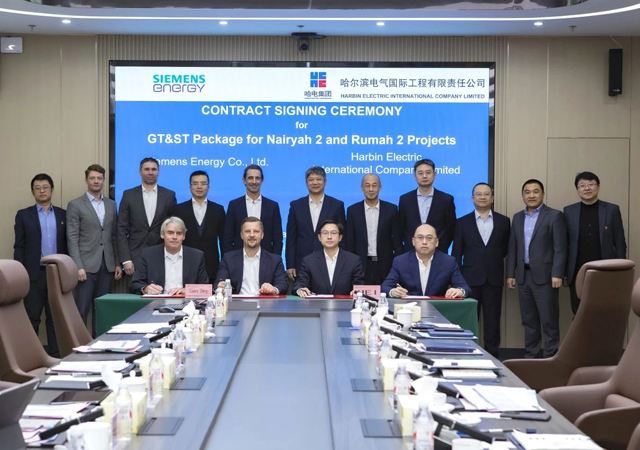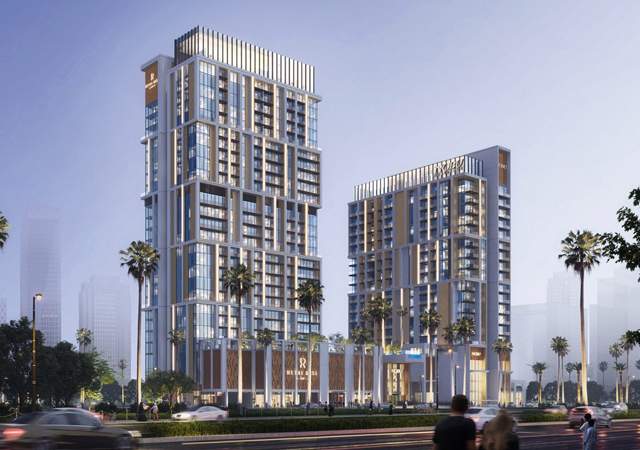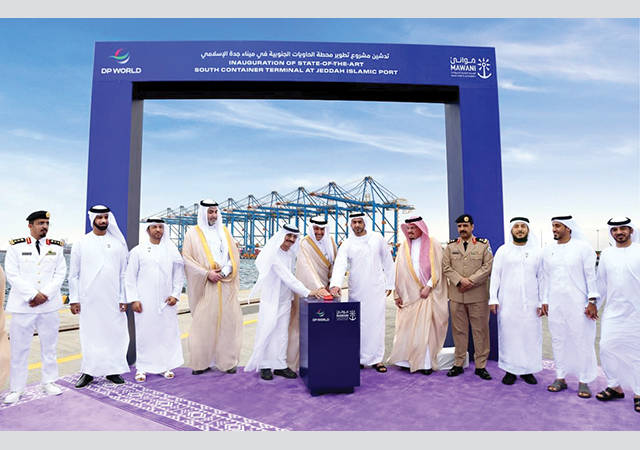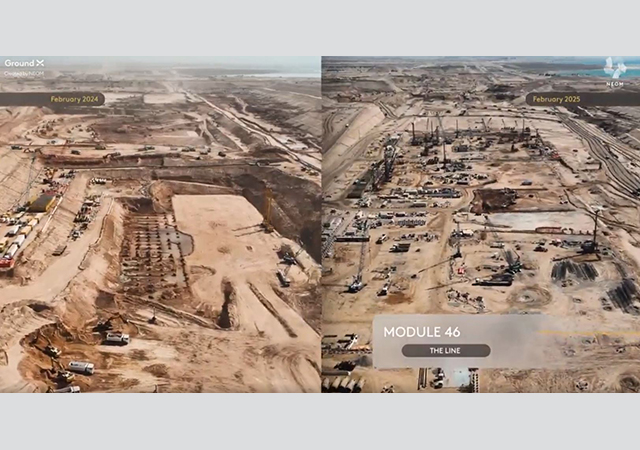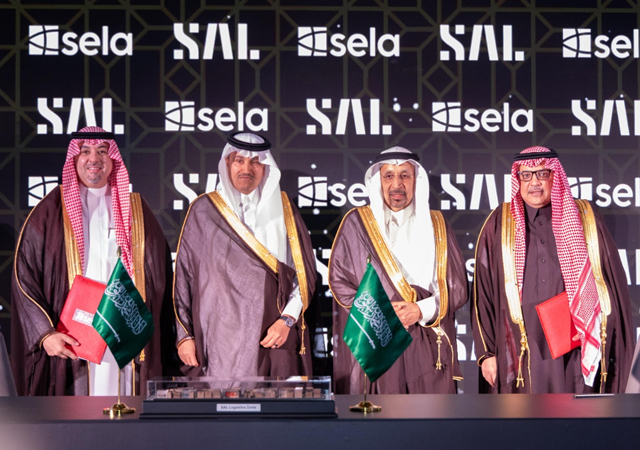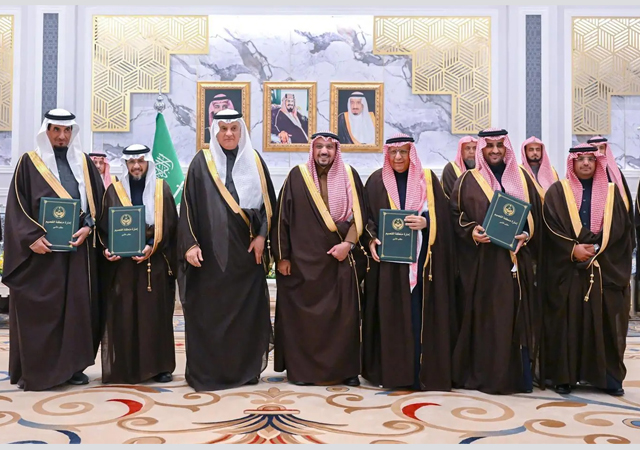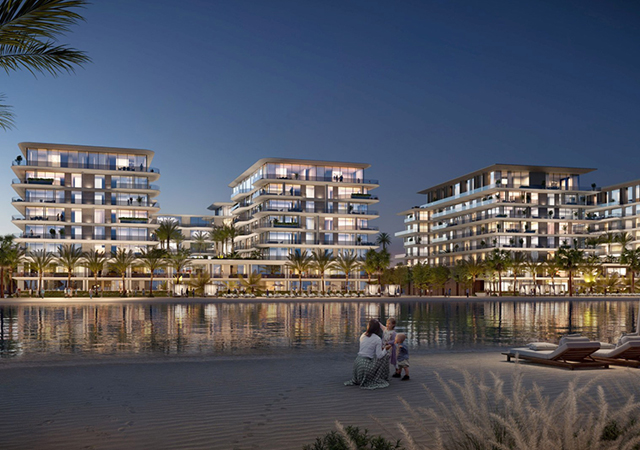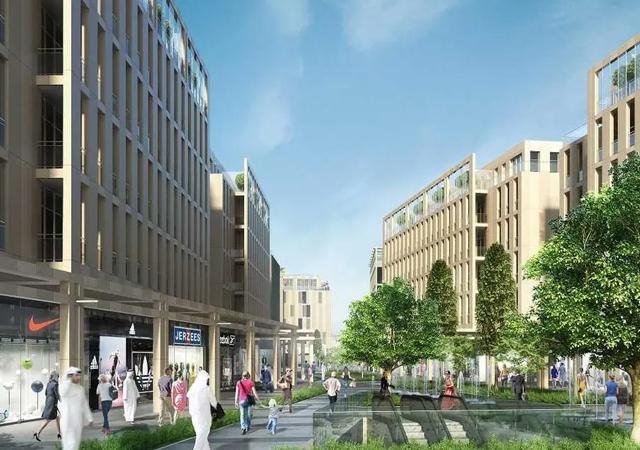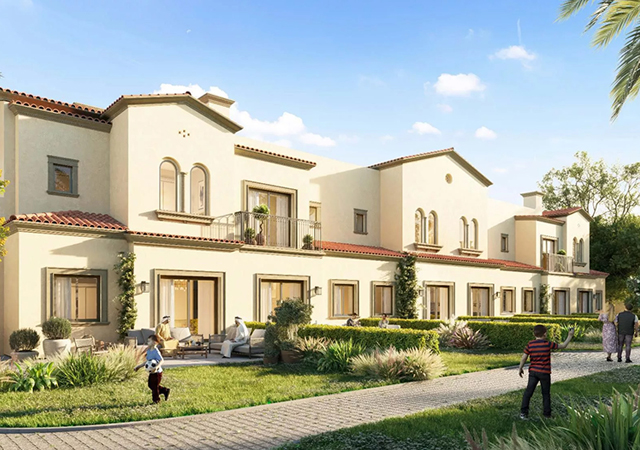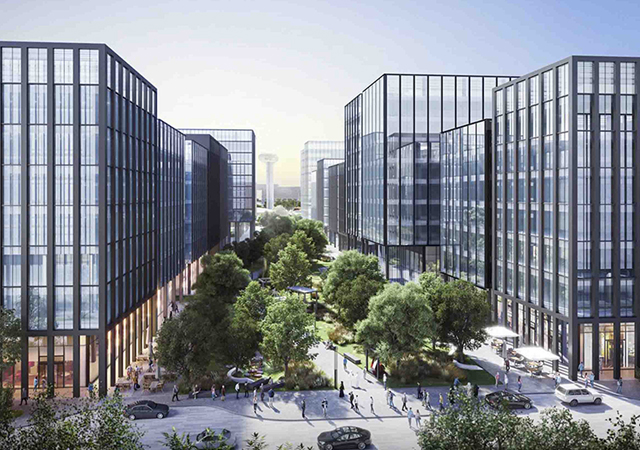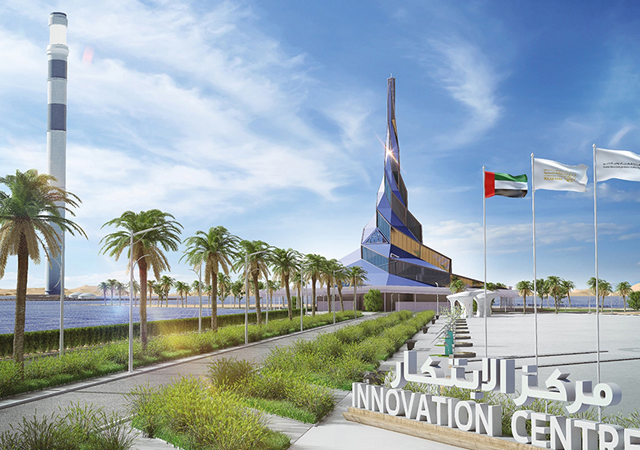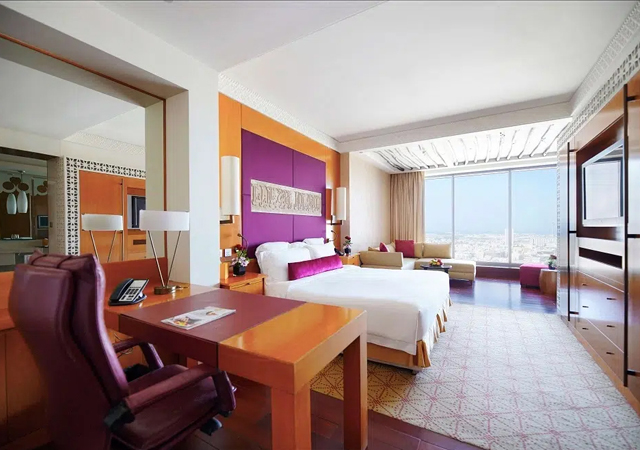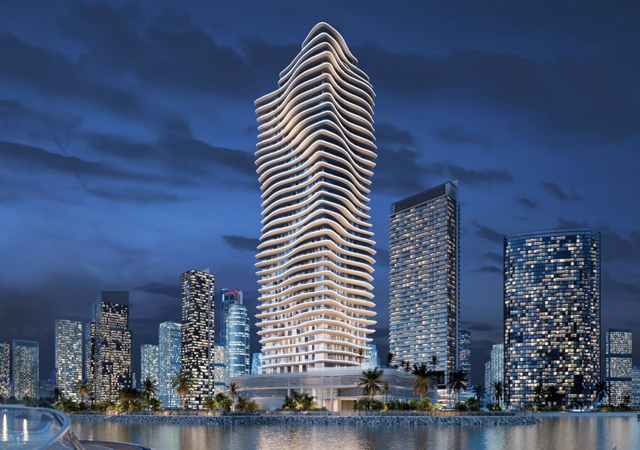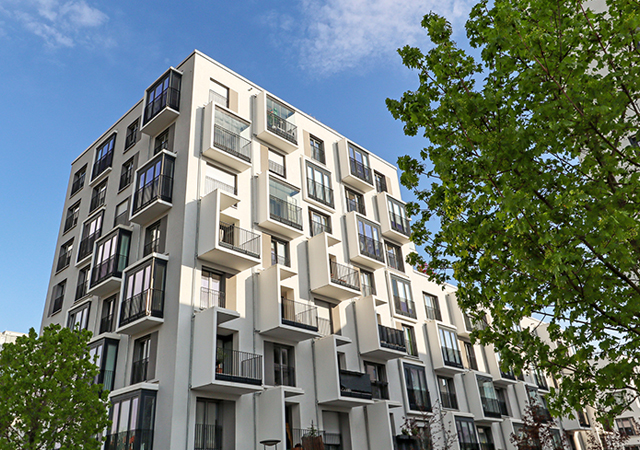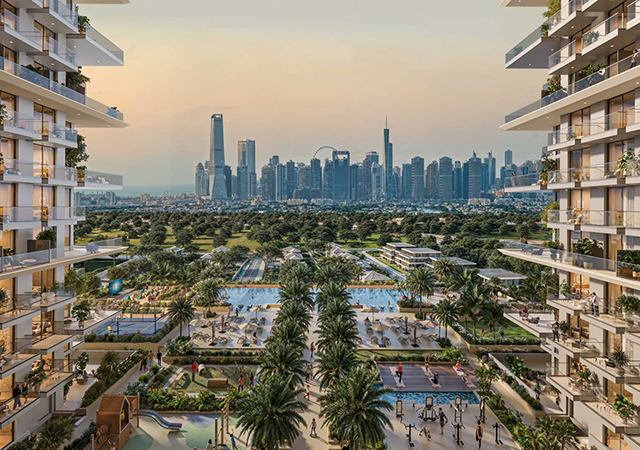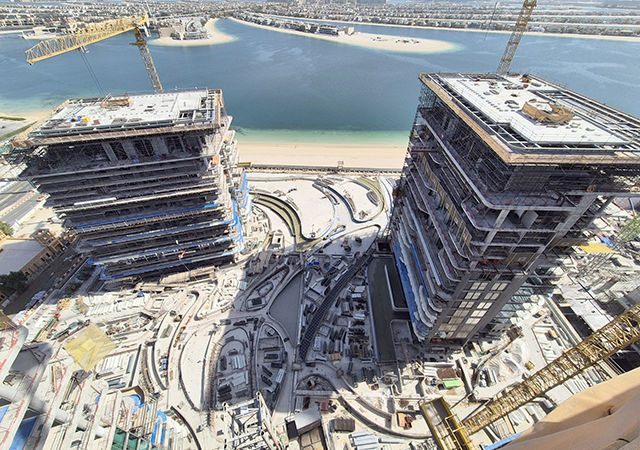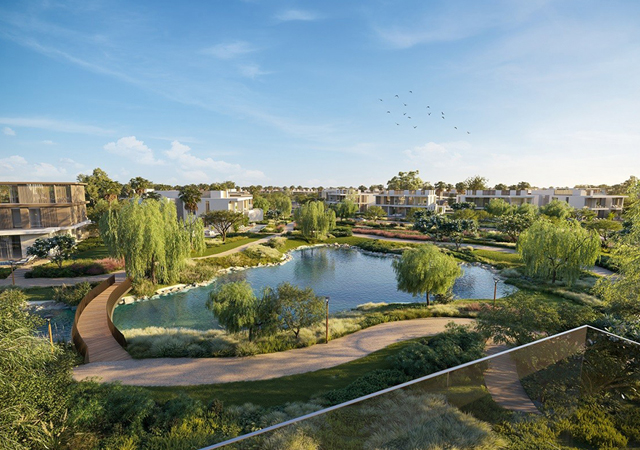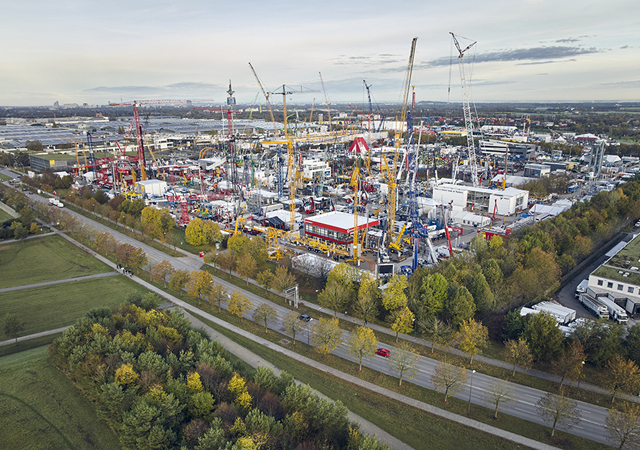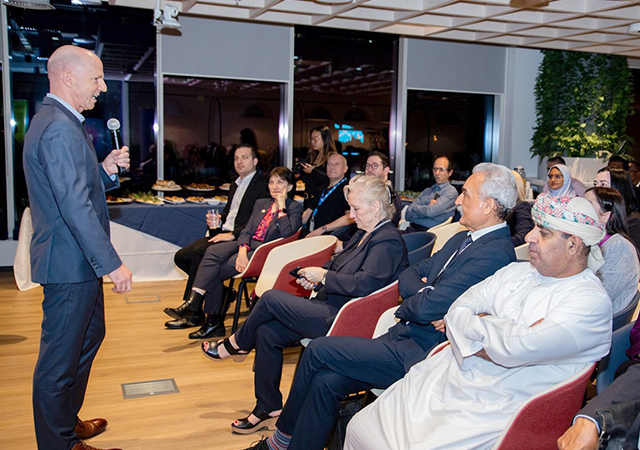
 Nalaya Villas ... part of the Najmat development.
Nalaya Villas ... part of the Najmat development.
TWO vibrant communities that cater to diverse lifestyles are taking shape in Abu Dhabi under the direction of Reem Developers, the real estate arm of Abu Dhabi-based Reem Investments.
Encompassing a total gross floor area of about 60 million sq ft (5.57 million sq m), the two mega projects – Najmat on Reem Island and Rawdhat on Airport Road – are on track to make their mark on the Abu Dhabi real estate landscape in terms of creativity, design and functionality, according to Kiam Kheong Ho, chief development officer of Reem Developers.
“As master developers we offer different kinds of lifestyle offerings,” says Ho. “We look at the character of the place and turn it into a vibrant community.”
Najmat is a $8-billion, 170-hectare township development that boasts a sophisticated waterfront lifestyle on the 650-hectare Reem Island. It is a mixed-use development comprising residential and commercial units and a shopping mall, which will be one of the largest of its kind in Abu Dhabi. Located right at the entrance of Najmat, the mall will offer more than three million sq ft of retail, food and beverage and entertainment outlets.
Najmat comprises a gross floor area of approximately 4.75 million sq m spread over 141 plots and includes community amenities such as a K-12 school, hospital, marina, two mosques, and open parks and pedestrian plazas. Building heights range from two to 75 storeys and design themes vary throughout the development.
 |
|
The Nobu Hotel at Najmat ... exclusive dining and entertainment facilities. |
The project is being developed in phases. Phase One represents the urban core of the development and includes offices and other commercial units. Phases Two and Three are medium-density areas consisting primarily of low-rise residential buildings, public spaces and public facilities.
Commenting on the current status of the project, Ho says: “Phase One has been completed in terms of infrastructural development. We are working closely with other developers to build their plots. We are also putting finishing touches to the beaches and landscaping.
“In between the residential and commercials units, we will have a promenade, walks, suqs, beaches and amphitheatres. We are taking care of all the spaces in between. All underground services, roads and utilities for Phase One have been completed. Separately, we are also moving ahead very quickly with infrastructural works in Phase Two and hope to finish it in the second half of this year. Phase Three of the project, to be executed later, is expected to be completed by end of next year.”
The project also features a 250-m-diameter marina to accommodate 166 yachts. It will also include a floating stage for events and performances and will be linked to an 800-m canal, lined by al fresco dining outlets and street-side shops.
Reem Investments has also tied up with Nobu Hospitality to operate and manage Nobu Hotel at Najmat. The development will occupy a prime position on Najmat Marina and Canal, offering panoramic views of the Abu Dhabi skyline. Guests will have exclusive access to a variety of destination dining and entertainment facilities in addition to the Nobu restaurant, as well as a private beach.
Located at the entrance to the marina, the complex will feature a 200-room hotel and a residential tower with 80 apartments with water frontage on three sides – including the beach and canal frontages.
“We believe with such a location it will be a highly sought-after destination. We are currently working closely with the authorities to get the permits in place and by end of this year or early next year we will start construction work and hope to complete the project some time in 2014,” Ho says.
Also part of Najmat is the Nalaya Villas project launched by the company earlier this year. It comprises uniquely-designed 42 villas encompassing three, four and five bedrooms, as well as extensive greenery and a private beachfront. Construction work will take about a year and is expected to be completed next year.
“The Nalaya development will benefit from both a private beach and park, offering a distinctive haven away from the hustle and bustle of nearby downtown Abu Dhabi. The community will be further serviced by a private clubhouse and swimming pool,” Ho says. “The idea to do certain projects ourselves is to show confidence in the project.”
Reem Investments is one of three master-developers for the 650-hectare Reem Island project, which when fully developed, will be linked from the heart of the capital by nine bridges. The other two developers are Tamouh Investments, which is developing 60 per cent of the Reem Island, and Sorouh Real Estate. Sorouh and Reem Investments are developing 20 per cent each.
Rawdhat
Meanwhile, Rawdhat is a landmark residential and business district with its own vibrant sporting community, located at the entrance to Abu Dhabi City. In line with the concept of the project, Reem Investments has turned a few plots into football fields.
The indoor and outdoor football pitches and the clubhouse facilities at the Dome@Rawdhat are home to Manchester United Soccer Schools and currently host more than 12,000 players and their families each month. A similar facility is planned at Najmat.
Reem Developers has drawn up the masterplan and completed all the infrastructural works on the development. Third-party developers have bought land and have started work on their projects. More than 28 developers have already commenced construction work, while other developments are still in the design stage. The project comprises a total of 70 plots.
“The landscaping is now well under way and the abundance of trees and plants will make the community a beautiful and relaxing place to live and work,” says Ho.
As work continues on the project, a solitary olive tree – a rarity in the UAE – has become the signature piece in the major landscaping exercise to create a modern oasis at the landmark residential and business district at the entrance to the UAE capital.
“We wanted the centrepiece to be something unique and chose the olive tree because of its character and historic significance. It will give people a sense of arrival when they enter Rawdhat and those who live, work and visit will enjoy and appreciate it for many years to come.”
“Rawdhat will eventually be home to more than 18,000 residential and commercial tenants and we’re creating a special environment for them,” Ho adds.
“The infrastructure works were completed last year, the development already has a vibrant sporting community at its heart, and the landscaping will be completed next, creating lush green areas and open spaces.”
Located beside the Old Airport Road, Rawdhat is a contemporary community development taking shape on a 28-hectare plot of land overlooking the Sheikh Zayed Grand Mosque. It will feature attractive residential towers and a business park with dedicated, commercial office towers offering retail space on the lower floors. Close at hand will be a mosque, school and healthcare facility.
Integral to the overall design of the development is the concept of the courtyard, a historical architectural feature that is as relevant today as it was centuries ago, providing natural light and ventilation, privacy and security as well as tranquility.
“Rawdhat is exemplary of fine courtyard design planned around a central spine which is exclusively for pedestrians,” says Ho. “The entire walkway has a variety of landscape features, which make it the ideal place to walk, jog or just sit back and enjoy the verdant surroundings. This connects to the community’s hub which consists of a mosque, school, clubhouse, retail and food and beverage outlets.”
The masterplan has been organised into three distinctly themed clusters, namely:
• Mediterranean Residences, which comprise themed residences with their characteristic low-pitch roofs, large balconies, round arches above doors and windows and decorative iron railings;
• Traditional Arabesque-style residences, featuring a classic Arabesque style and aesthetic but complete with the modern conveniences today; and
• Modern-style towers, comprising commercial buildings featuring distinctive stylish natural materials and excellent craftsmanship.
Reem Investments
Reem Investments says it has set itself a mission to develop vibrant communities. Established in May 2005, the privately-held company, with a paid-up capital of Dh1.55 billion ($421 million), is primarily involved in the real estate and financial investment sectors. Earlier this year, the company had announced profits of Dh238.7 million ($65 million) for the financial year 2010.
Commenting on the company’s financial performance, its chairman, Sheikh Tahnoon bin Zayed Al Nahyan, says: “Reem Investments was able to put in a strong performance as a result of conservative measures we had taken in previous years to protect ourselves from market forces. These measures included our master development policy to sell land plots to strong established players as well as our decision not to revalue our land at Najmat Abu Dhabi during the boom times in order to post healthier profits. Last but not least, we adopted measures to control costs and followed a prudent investment strategy. Our strong financial position is proof that we are well equipped to meet the demands ahead as we look to build on our ongoing development and exploit new business opportunities.”
The company is currently focusing on opportunities in the healthcare, education and logistics sectors to diversify its income streams.


